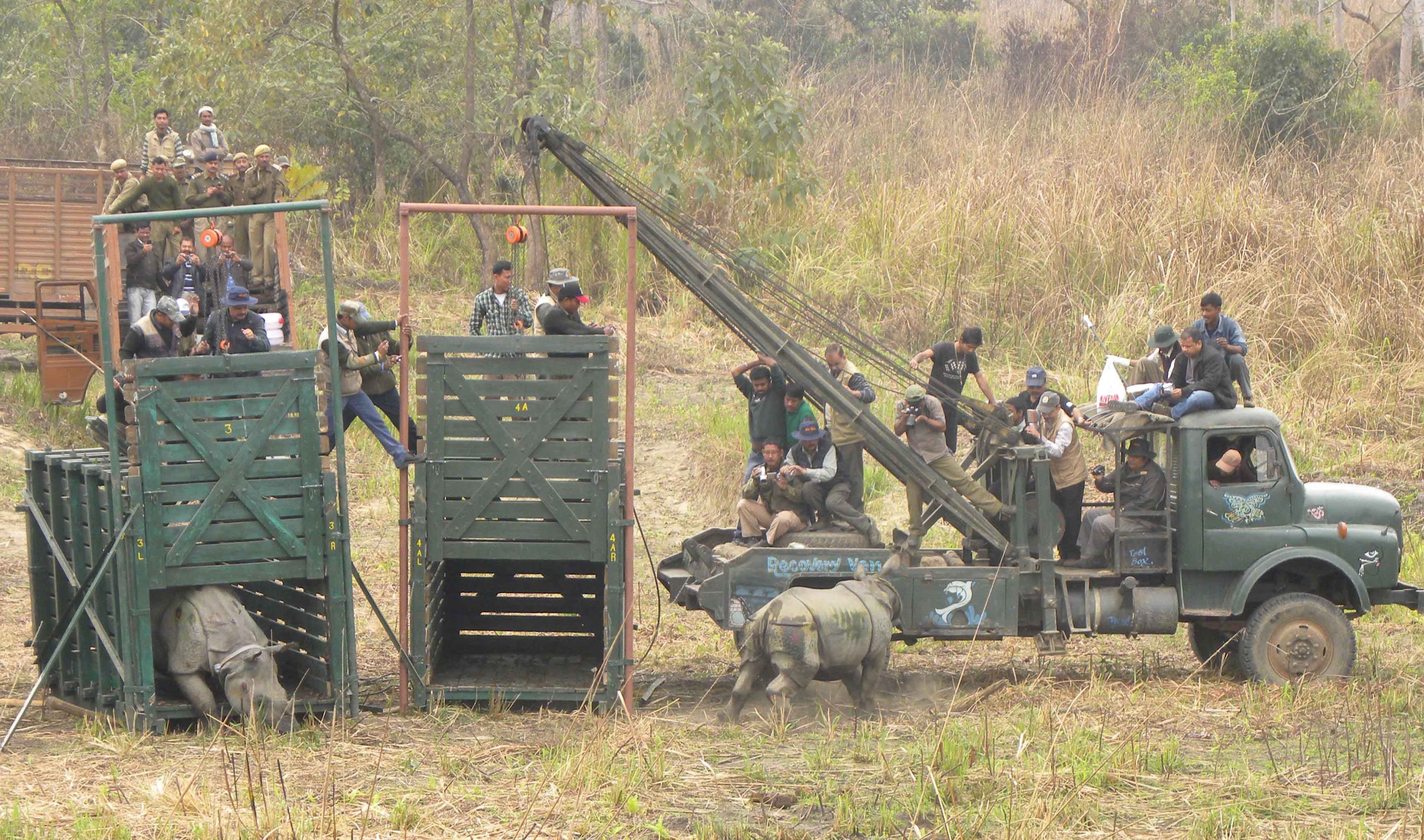Behaviour and habitat preferences of translocated rhinos (Rhinoceros unicornis) at Manas National Park, Assam, India
DOI:
https://doi.org/10.69649/pachyderm.v64i.524Abstract
Manas National Park (MNP) is located in the foothills of the Himalayas along the border between India and Bhutan. The original greater one-horned rhino population (Rhinoceros unicornis) of the Park was annihilated in the year 2000 by poaching. Less than a decade later, a new rhino population was reintroduced with the support of Indian Rhino Vision 2020, as part of a wider programme that included infrastructure improvements, anti-poaching schemes, and other management interventions. Between 2008 and 2021, 22 rhinos were translocated to MNP from Kaziranga National Park (KNP) and Pobitora Wildlife Sanctuary (PWS). Post-release monitoring was carried out over a six-year period, from 2008–2013, during which 10 animals (three adult males, four adult females, and three calves) were monitored continuously, using radio telemetry to track collared animals, and direct observation to monitor their behaviour. The study period yielded 4,941 radio-tracked locations and 3,711 observations, which provided sex/age specific seasonal data on activity patterns, home ranges, association patterns, habitat preferences, and ‘stray incidents’ when animals wandered outside the Park boundaries. Some differences from behaviour patterns observed in high flood-risk areas such as KNP and PWS were attributable to MNP’s slightly higher elevation that protects rhinos from annual river floods. Overall, however, the translocated rhinos did not exhibit significant differences in their behaviour and ranging patterns compared to wild rhino populations documented in previous studies. This suggests that the translocated rhinos were able to adapt effectively to their new environment. The first calf was born to a translocated adult female in 2011 and, by 2022, the population of rhinos in MNP was estimated at 50 individuals, including 38 calves born following the reintroduction. This study demonstrates the potential of well-managed translocation schemes to contribute to the recovery of endangered rhinos.

Downloads
Published
How to Cite
Issue
Section
License
Copyright (c) 2023 Deba Kumar Dutta

This work is licensed under a Creative Commons Attribution-NonCommercial 4.0 International License.



